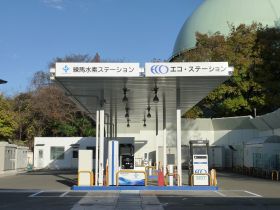01
JUL
2015
Renault-Nissan Alliance Team
Toyota, Nissan and Honda agree on details of joint support for hydrogen infrastructure development

Toyota Motor Corporation, Nissan Motor Co., Ltd., and Honda Motor Co., Ltd. have agreed on key details regarding a new joint support project for the development of hydrogen station infrastructure in Japan. In addition to partially covering the operating costs of hydrogen stations, the three automakers have also agreed to help infrastructure companies deliver the best possible customer service and create a convenient, hassle-free refueling network for owners of fuel cell vehicles (FCVs).
The joint project (conducted alongside the Japanese government’s support for hydrogen stations) will partially cover hydrogen station operating expenses incurred by infrastructure companies, and was first announced on February 12. Furthermore project partners will jointly raise awareness regarding these support measures, in order to encourage new companies to enter the hydrogen supply business. Financial assistance will be provided through the Research Association of Hydrogen Supply/Utilization Technology* (HySUT), which is setting up a project to stimulate demand for FCVs.
For FCVs to gain popularity, creating attractive products is only half of the equation. Hydrogen station infrastructure must also be developed to ensure ease-of-use for customers; however, infrastructure companies face difficulties constructing and operating hydrogen stations. FCVs are a new entry into the market, and hydrogen station revenues are expected to remain low due to the limited number of cars currently on the road.
In June 2014, the Japanese government unveiled its Strategic Road Map for Hydrogen and Fuel Cells, which involves subsidizing the construction of hydrogen stations and reviewing regulations. Furthermore, in February, the Japanese government decided to partially subsidize hydrogen station operational expenses in order to help stimulate new demand for FCVs. In such ways, the Japanese government continues to contribute to the development of hydrogen station infrastructure.
Meanwhile, Toyota launched the Mirai FCV in late 2014, while Honda has announced its plan to bring an FCV to market before April 2016 and Nissan is also planning to market an FCV as early as 2017. Through this project, the three automakers plan to steadily support hydrogen station infrastructure from a medium-term perspective, until FCVs become well established in the market and the development of hydrogen station infrastructure is well underway (potentially around 2020).
Read more from the press release here.
print
Tweet





Post new comment